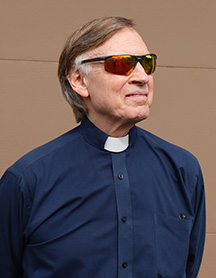Myths About Dying with Reverend Dr. Robert L. Gram.
June 11, 2024 3:00-4:30pm at Circle Home (100 Wurts St, Kingston)
Often our understanding of dying is predicated on cultural constructs of the process. Perhaps the most significant and lasting myth is that dying is evolutionary, involving five sequential stages: denial, anger, bargaining, depression, acceptance. The theory was formulated by Elizabeth Kubler-Ross in her seminal work, “On Death and Dying,” published in 1970. Increasingly, the author and her acolytes wrote that the final stage acceptance was a state of creativity and advancement. Still popular today, the myth advances the idea that dying need not be fearful, but rather something positive, even a psychic high point to one’s existence.
The Five Stage Theory attempts to take the mystery and terror from the dying experience. It does not rest on good science, and often complicates the care of the terminally ill by raising unrealistic expectations.
The same can be said about the Near Death Experience, first formulated by Raymond Moody in his book, “Life After Life” (1975). Moody removes the fear of dying by formulating that those who have died and return to life report a white light leading to a heavenly realm, where sublimity reigns. The problem is that none of the returnees were never brain dead, and thus their visions may tell us something of the psychoactivity at life’s end, but, scientifically, they bare no witness to what, if anything, awaits after death. Plus, there are studies which demonstrate that not all Near Death Experiences are positive.
Dr. Gram will explore a couple of other myths, which also interfere with care for the dying and those who mourn their passing.
There is no fee to attend, but registration is required. If interested in attending, please click here.

Reverend Dr. Robert L. Gram
Rev. Dr. Robert L. Gram was baptized, confirmed, and ordained in the Reformed Church in America, and has served several RCA congregations. Prior to coming to Hurley, Bob was contract minister for the Kinnelon Reformed Church in New Jersey. Bob holds degrees from New Brunswick, Princeton, and San Francisco Seminaries. He also obtained a graduate degree in social work from Columbia University and is a Licensed Clinical Social Worker. Besides his pastoral duties, he is employed as a Group Substance Abuse Clinician at the Addiction Institute of New York at St. Luke’s Roosevelt Hospital. Bob also has a private practice in psychotherapy, and is an adjunct professor at Ferkauf Graduate School in Psychology, Yeshiva University. Bob has authored one book, and more than 75 articles.